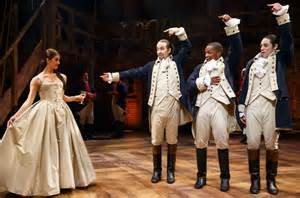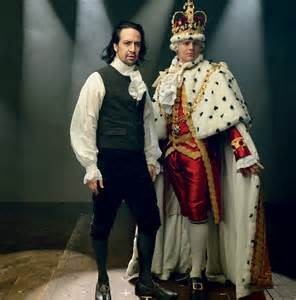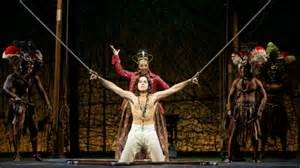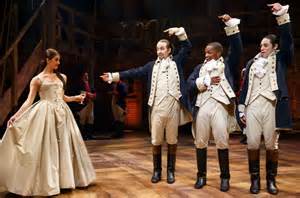
Hamilton and Amazing Grace, two new Broadway musicals, are about very different subjects, but both offer not only great entertainment value, but also food for thought when it comes to race in America. Certainly, the various recent incidents involving the questionable and sometimes illegal use of police force on blacks, enlightening and accusatory justice department findings, and the mass murder of men and women at a black church in Charleston, S.C. by a white supremacist have charged the emotions of lawmakers, citizens, and the President of the United States.
Race, and specifically slavery and those who were enslaved, is something with which the United States has never totally come to terms. Perhaps that’s because the more than 100-year cultural norm of slavery and the mentality that allowed it to happen and prosper is not something that you can deal with in a relatively short historical period. This may be especially true in a nation as diverse of ours, which has 50 states, each with a certain amount of independence and personal identity and yet each a part of a “united” country.
Hamilton and Race

Hamilton, which offers audiences a racially mixed and predominantly minority cast playing mainly white historical figures, actively challenges our ideas of race, putting in the forefront, through its casting and other artistic decisions, the question as to whether or not race is a cultural and societal construct and not a simple reality.
Set to hip-hop and R&B styles, this historical musical about Alexander Hamilton is entirely sung. The lyrics are powerfully potent on many levels, and the characters are strongly drawn and very real. Historically, Hamilton, a man who was a born out of wedlock, poor, orphaned, and raised in the West Indies, rose to power and became chief staff aide to General George Washington, was a driving force behind the Constitution, created the U.S. Coast Guard, and was the first Secretary of the Treasury.
The story unto itself is fascinating, but the manner in which creator Lin-Manuel Miranda and the rest of the creative team have fashioned it is brilliant, captivating, and enthralling.
Amazing Grace and Moral Conscience

Amazing Grace is the story of John Newton. Along with being the man who penned the hymn, which is used as the title of this musical, Newton was the son of a slave trader. It is on a voyage to American on a ship loaded with slaves that Newton feels pangs of conscience regarding the morality of the lucrative family business of which he is a part. Family pressures and traditions deem that he should be a slave trader and, yet, the compassionate views of his childhood sweetheart tug at his conscience and sense of justice.
At the memorial service in Charleston, S.C., President Obama, as part of his eulogy, sang “Amazing Grace,” using it to connect those who had been murdered to a responsibility that we all now carry to be a part of a “United” States of America. Newton’s journey of enlightenment in the musical Amazing Grace is one that the entire country must also eventually take.
Connecting US
Uplifting, resonant, and thought provoking, Amazing Grace and Hamilton are two new Broadway musicals that everyone, from school students to seniors, will find inspiring and valuable. Both are not only potential hallmarks of the 2015-2016 Broadway season, but they are also important connectors that join us with our past in order to see a new and better future.

